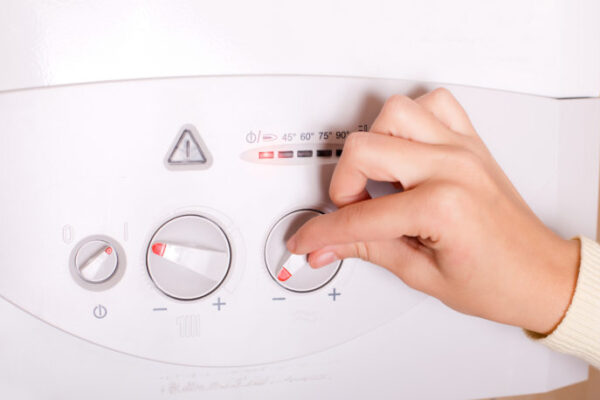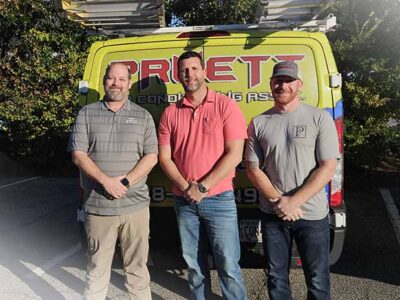
We’re generally comfortable with leaving many things in our lives a mystery. Most of us don’t really know how our smartphones work or how a thin TV can produce such a beautiful picture. As long as these devices work as they should, we leave those mysteries alone. However, homeowners in Warner Robins, Georgia, can take greater control of their home by understanding what makes it tick. Learn more about water heaters so you can make informed decisions that will bring greater efficiency and convenience to your household.
Water Heaters Consume A lot of Energy
Since it typically sits behind a closed door, it can be easy to forget that your water heater is a core contributor to your monthly energy costs. Think of how often you use that heater. Every time you shower, clean your hands, wash the dishes or do anything else that requires hot water, you’re demanding effort from your water heater. In fact, 25 percent of the energy your home consumes is used to heat your water.
How can you avoid paying exorbitant utility costs? Start by choosing a high-efficiency water heater as opposed to a standard water heater. It can reduce that energy usage by 10 to 50 percent. However, the easiest way to cut hot water costs is to limit your consumption.
Water Heaters Have Varying Lifespans
If you know the lifespan of your water heater, you can plan for a replacement before its expiration date. It’s better than coming home to a dead tank without warning. Tankless water heaters last about 18 to 20 years. Tank, or traditional, water heaters only last between 10 and 12 years. That increased lifespan comes with a price, though, since tankless water heaters can often cost twice as much.
There Are Three Main Types of Water Heaters
Believe it or not, there are actually three main types of water heaters, each with their pros and cons. Electric heaters use electric currents to heat the water to the temperature setting on your thermostat. They also tend to be 93 percent efficient, which makes them one of the most energy-efficient water heaters on the market.
Instead of electricity, gas heaters use — you guessed it — gas to heat the water to the thermostat threshold. These heaters are generally cheaper and more common, but they also tend to be less efficient. That efficiency is largely determined by the heater’s age and size. A newer gas water heater will be about 62 percent efficient.
While traditional gas and electric water heaters contain a water reservoir, tankless water heaters don’t. Instead, they pump in and heat water as needed. You can power a tankless water heaters using either electricity or gas. They tend to be about 82 percent efficient.
There Are Solar-Powered Water Heaters Too
You’ve heard of solar-powered generators, but who knew there were solar-powered water heaters too? Solar water heating systems are a great way to improve the energy efficiency and environmental friendliness of your home.
These green water heaters work by absorbing sunlight through panels placed on a rooftop, utilizing that energy to heat water in a storage tank. However, these panels work a little differently than your standard, electricity-producing solar panels. Rather than generating electricity, solar thermal collectors use sunlight to produce heat. The heated liquid in those collectors then pumps into the water heater.
By only relying on the power of the sun for energy, solar water heaters drastically lower your carbon footprint. They also reduce utility costs, since you’re generating your own energy, and require little maintenance. Both of these help out your budget.
Solar-powered water heaters are best used in warmer climates, since it can be difficult for this type of system to combat extreme cold. They would likely work fine in the moderate climate of Warner Robins.
Your water heater is an integral factor in the comfort and convenience of your home. The more you know, the more efficient your system will be. For a professional hand getting control of your comfort, call Pruett Air Conditioning at 478-953-4986.
Image provided by Shutterstock

